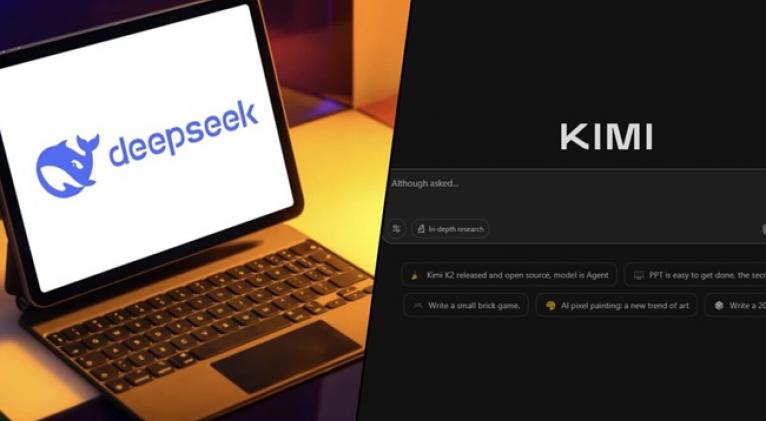
China, 15 Jul. - The Chinese startup Moonshot AI has presented Kimi K2, an open-source artificial intelligence model that comes with outstanding programming capabilities and autonomous tasks that, according to published benchmarks, pulverize the competition in several of its models.
Its launch comes at a key moment for the sector, as Chinese companies seek to replicate DeepSeek's disruptive success with powerful models that are much cheaper than market alternatives.
Moonshot AI was one of the most promising startups in the Chinese AI ecosystem, where giants like Alibaba have invested heavily.
Its chatbot, Kimi, reached third place in monthly active users in August 2024, but fell to seventh in June following the emergence of DeepSeek R1 in January.
Now, it is trying to regain ground with a strategy that combines open source and aggressive pricing, following the formula that catapulted DeepSeek.
The model has 1 trillion total parameters and 32 billion activated parameters, using the well-known mixture-of-experts architecture to optimize computational costs.
It comes in two versions: a base version for researchers and developers, and another optimized for conversation and autonomous tasks.
Kimi K2 thus becomes Moonshot AI's proposal with the ability to act as an intelligent agent to use tools, write code, complete workflows or converse, among other tasks.
Moonshot is charging $0.15 per million input tokens and $2.50 per million output tokens to developers using its API.
In comparison, Claude Opus 4 charges 100 times more for input ($15) and 30 times more for output ($75), while GPT-4.1 charges $2 per input and $8 per output.
Furthermore, the model is available for free on Kimi's web and mobile apps, without the monthly subscriptions required by ChatGPT or Claude for their more advanced models.
The launch comes at a critical point where OpenAI, Google, and Anthropic must respond to this wave of inexpensive, high-quality language models.
The question is no longer about open source models, but rather whether large tech companies can adapt their business models quickly enough to compete in this new scenario. (Text and Photo: Cubasí)